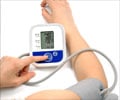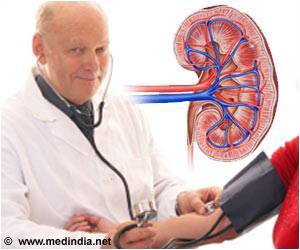Older living kidney donors with hypertension have a higher risk of developing kidney failure across 15 years after donation. However, those with hypertension are not at risk of dying early.
Highlights:
- Older living kidney donors with hypertension have a higher risk of developing kidney failure through 15 years after donation
- However, hypertension among older donors has not been linked to a higher risk of early death
- Findings could be used as information for individuals considering a donation and in monitoring the health of living donors
Read More..
Living Kidney Donations
For patients with kidney failure, the best treatment would be to receive kidneys from living donors for transplantation. However, it is vital to ensure that the potential donors are able to donate safely, without their health being jeopardized. Although, many earlier studies have shown that old age is not necessarily a barrier to kidney donation, hypertension is common in many older individuals. It has remained unclear if hypertension increases the risk of kidney failure or early death among the population of older donors. The analysis of clinical information of older living kidney donors, done as part of a new study, reveals that hypertension is linked to a higher risk of developing kidney failure.Details of the Study
Dr. Fawaz Al Ammary of Johns Hopkins University School of Medicine and his colleagues analyzed the data on 24,533 older kidney donors from 1999 to 2016 available in the national registry. This also included 2,265 individuals who had hypertension at the time of donation. The information available on the national registry was linked to the data from the Centers for Medicare & Medicaid Services and the Social Security Death Master File in order to determine the donors who had developed kidney failure or died. Donors were observed for a median follow-up time of 7.1 years after kidney donation to a maximum of 18 years. Over 24 donors developed kidney failure and 252 died during the study period. Higher risk of kidney failure was linked to hypertension at the time of donation, whereas mortality was not.Older donors with hypertension had a 0.8 percent of risk failure in contrast to older donors without hypertension who had only a 0.2 percent risk in the 15-year period. The risk of kidney failure in older donors with hypertension was 3.1 times higher when compared to those without hypertension, but with similar clinical characteristics otherwise.
An even stronger association of a 6.2-fold higher risk for kidney failure among donors with hypertension was observed when only the donors from the 2004-2016 period were included in the analysis. The restriction was a result of the unavailability of documentation of antihypertensive therapy before this time. However, there was no significant association that was observed between donor hypertension and 15-year mortality.
Observations
“Fortunately, the number of kidney failure events in this population is small. Albeit a rather small risk, practice guidelines for live kidney donor evaluation need to be revisited,” Dr. Al Ammary said. “While controlled hypertension in otherwise eligible older individuals may not be viewed as an absolute contraindication for kidney donation, these findings may inform conversations between the provider and the older individuals with hypertension when they consider donating a kidney,” he added.The study is the largest to examine the long term risks that may be faced by older donors with hypertension. The findings will be published in an upcoming issue of Clinical Journal of the American Society of Nephrology (CJASN). The research team plans to conduct further studies in this area as the number of older individuals, who could be a very crucial source of organs, for living donation is growing. This would be a great advancement in the field of organ transplantation.
Using the Findings
Dr. Kenneth Newell (Emory University School of Medicine) and Dr. Richard Formica, Jr. (Yale University School of Medicine) have made some observations on how the findings should be used, in an accompanying editorial.The findings, “Should not be used to ‘allow or ‘exclude’ individuals from proceeding with living kidney donation but rather should be incorporated into a comprehensive educational program to better inform donors about the long-term consequences of their decision to be a living kidney donor. In addition, these findings identify a cohort of medically complex living kidney donors who should be offered the opportunity to enroll in specialized programs to provide lifetime surveillance for and treatment of conditions associated with an increased risk of end-stage kidney disease.”
References:
- Risk of ESKD in Older Live Kidney Donors with Hypertension - (https://cjasn.asnjournals.org/content/early/2019/06/24/CJN.14031118)
Source-Medindia
















